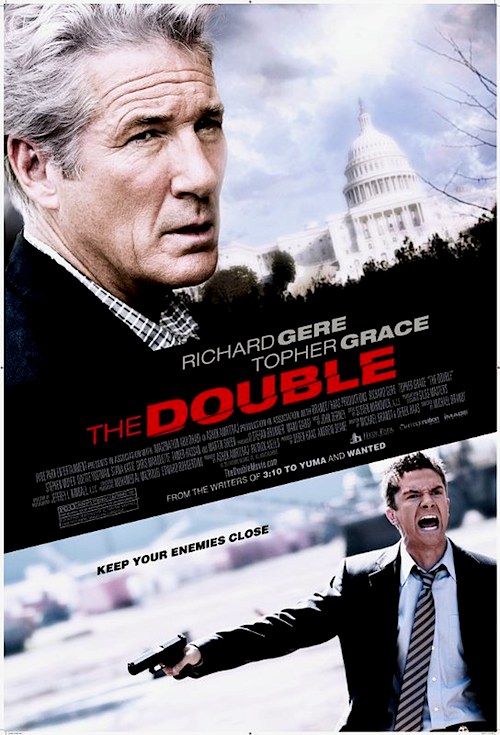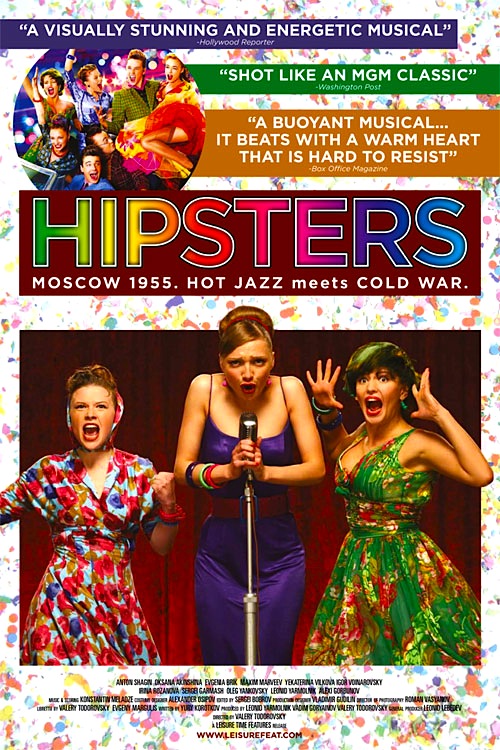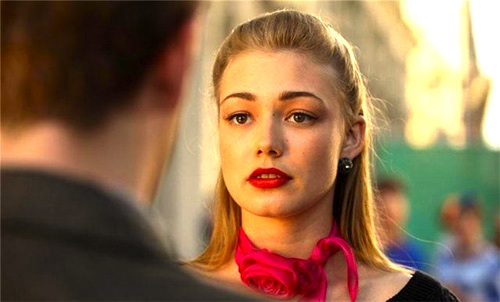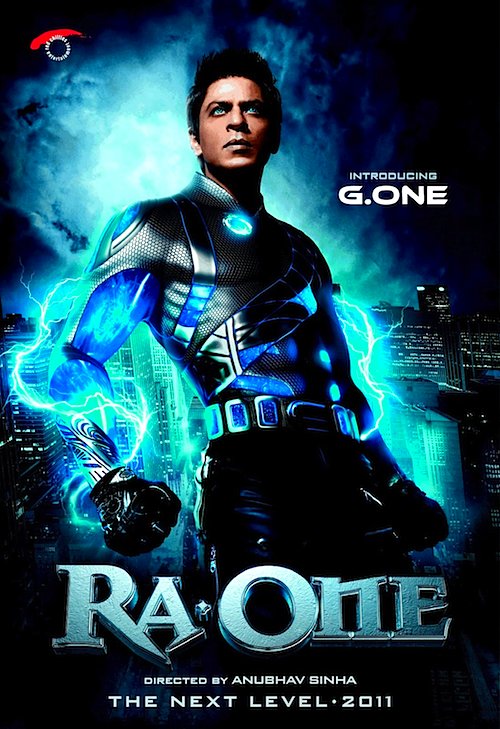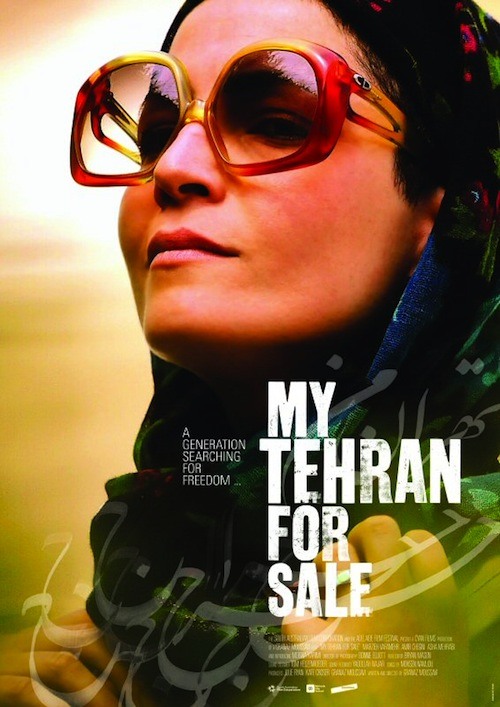By Joe Bendel. In near future Russia, red signifies good and blue designates evil. Ahem. Russia’s powerful natural resources minister is preoccupied with a device that reveals the good-to-evil ratio of everyone and everything viewed through it. He would like to put this information into practice and he ought to have the time to do so, considering he will more or less live forever. Of course, nothing is quite so simple in Alexander Zeldovich’s science fiction fable The Target (trailer above), which screens during the eleventh annual Russian Film Week in New York.
Somewhere in Nowherestan, there is a colossal abandoned Soviet astrophysics research facility. Built into the ground, it looks like a giant target from the surrounding mountains. The bull’s eye collects not just radiation, but also chi force. Those who spend the night in the focal point will apparently live forever. For a man of privilege like Minister Viktor Chelshchev and his increasingly discontented wife Zoya, it is a trip worth the expense and inconvenience.
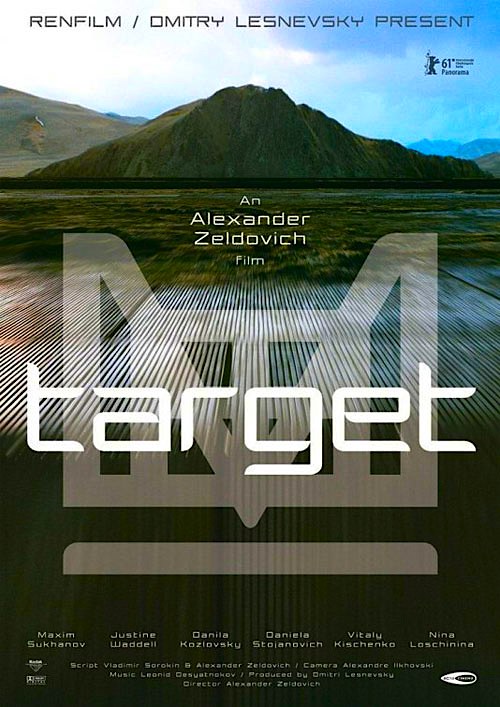 With Zoya’s brother Dmitri and his friend Nikolai, a thrill-seeking border enforcement officer, they make the long journey east. They also share their passage with another postmodern pilgrim, who turns out to be the woman of Dmitri’s dreams. Together they spend a fateful night in the Target, which turns out to be everything it was promised to be and then some.
With Zoya’s brother Dmitri and his friend Nikolai, a thrill-seeking border enforcement officer, they make the long journey east. They also share their passage with another postmodern pilgrim, who turns out to be the woman of Dmitri’s dreams. Together they spend a fateful night in the Target, which turns out to be everything it was promised to be and then some.
Initially, everyone feels energized, buzzed even. However, it quickly becomes clear the target acts as a karmic steroid shot. Their emotions become rawer and their passions more intense, overriding their empathic affinities. As Zoya and Nikolai launch into an affair, taking the film on a futuristic Anna Karenina detour, Chelshchev boldly announces his intention to screen mines and worksites to avoid evil deposits (for real). How do you think that goes over?
A strange but not implausibly exotic environment, Target initially brings to mind the austere, almost antiseptic near future vibe of classic 1960’s-70’s science fiction films like 2001, World on a Wire, and, dare we say it, Solaris. However, things get rather messy in a hurry. Indeed, Target is a tricky film to get a handle on, because it veers into some trippy territory that has very real narrative consequences. Yet, despite the nature of its themes and motifs, there is nothing New Agey about the film. It is never proscriptive. Rather, it returns to one of the central cautionary principles of speculative fiction: those who would become like gods . . .
As Zoya/Anna, South African born English actress Justine Waddell (who had a smaller supporting role in Bernard Rose’s Anna Karenina) is a brittle, haunting presence, bringing to mind Anouk Aimée and Anna Karina in the films of Fellini and Godard. Likewise, Maxim Sukhanov finds unexpected depths of humanity in Chelshchev, somewhat resembling a Russian Mastroianni. Indeed, Target is better thought of in Nouvelle Vague and surrealist traditions than as genre cinema per se.

Ambitious in scope, cinematographer Alexandre Ilkhovski’s wide vistas of the Target and surrounding mountains are visually arresting. This is definitely big picture filmmaking. Still, in several respects Target is an alarmingly current film, positing a Russia ever more dominated by a resource hungry China. It also depicts the violent cruelty of mobs in no uncertain terms. Even if they are poor, they can still be evil.
In just about every way, Target is an uncompromising film for the ‘top one percent’ rather than a simpleminded rabble. For those who enjoy science fiction at its most challenging, Target is strongly recommended. It screens again tomorrow night (11/1) during Russian Film Week in New York.
Posted on October 31st, 2011 at 12:13pm.
